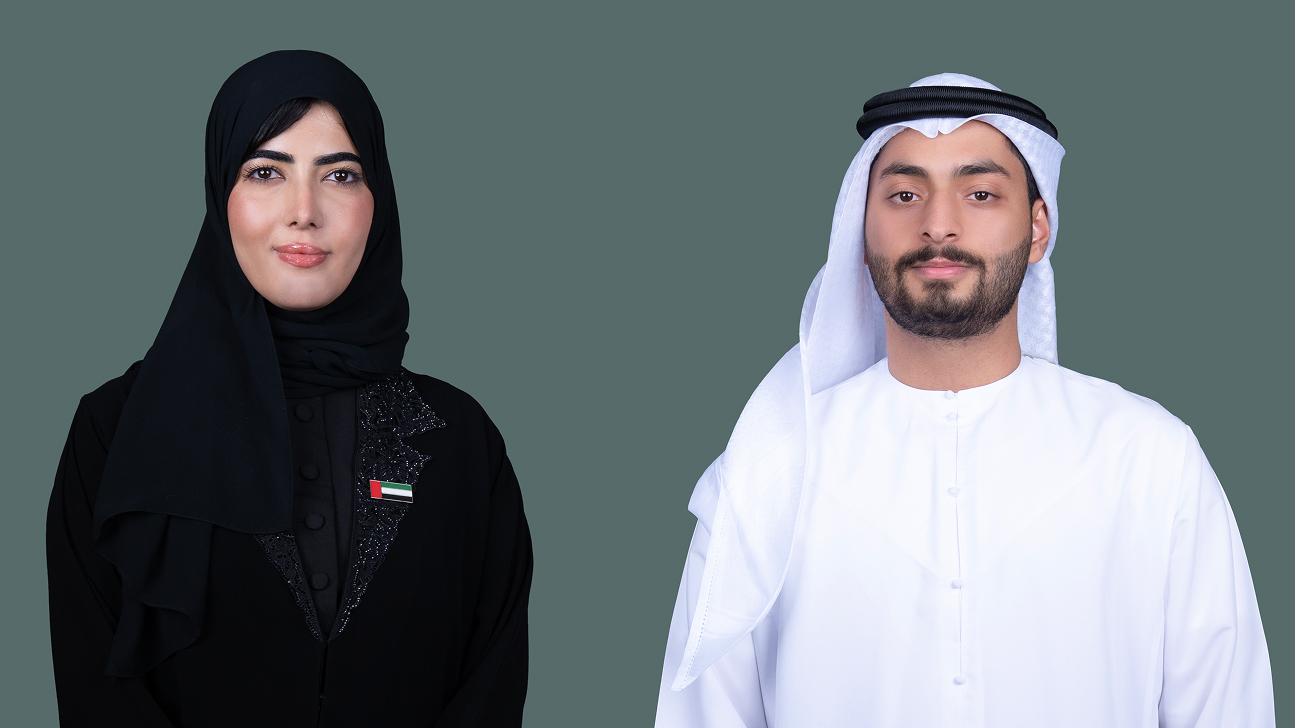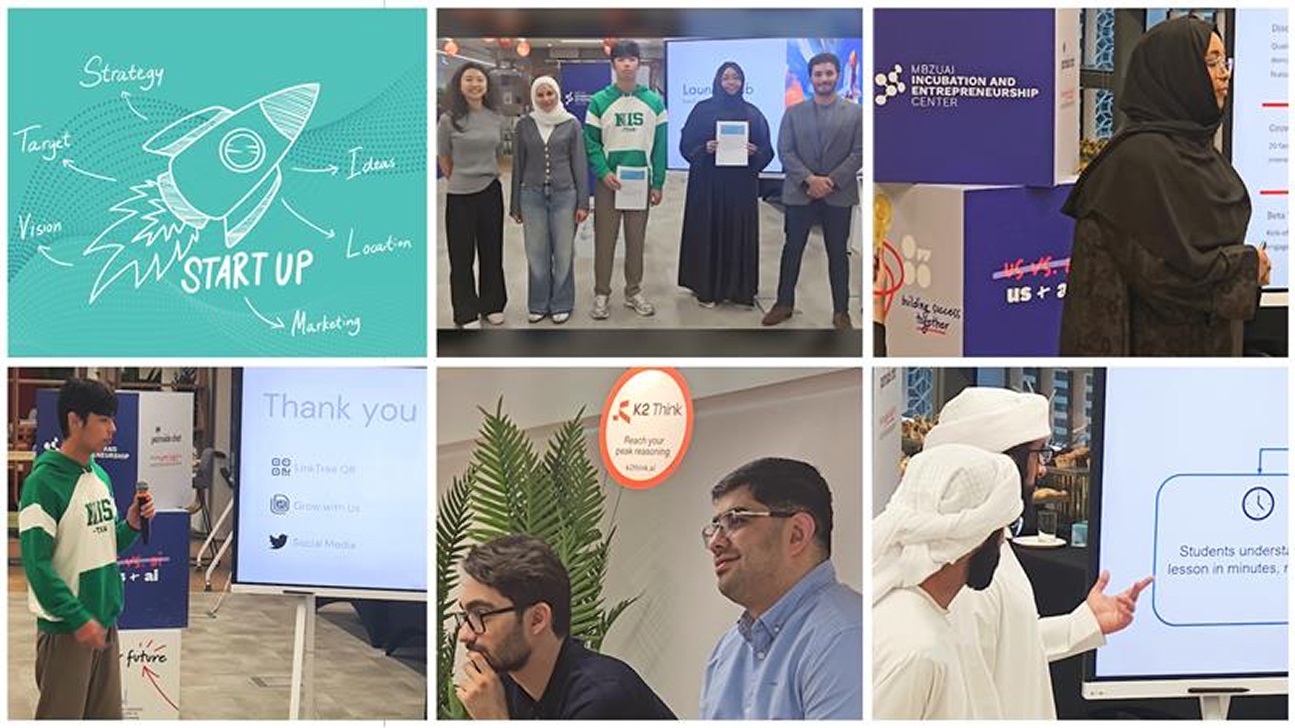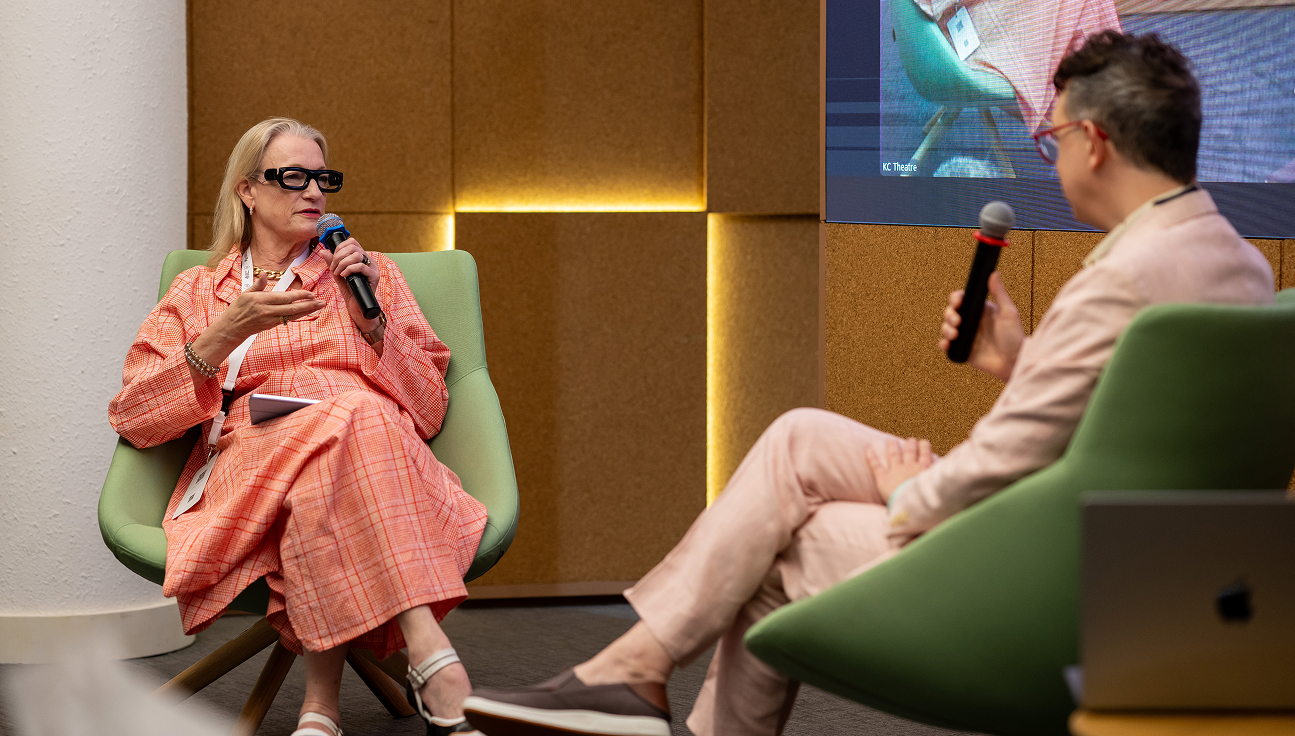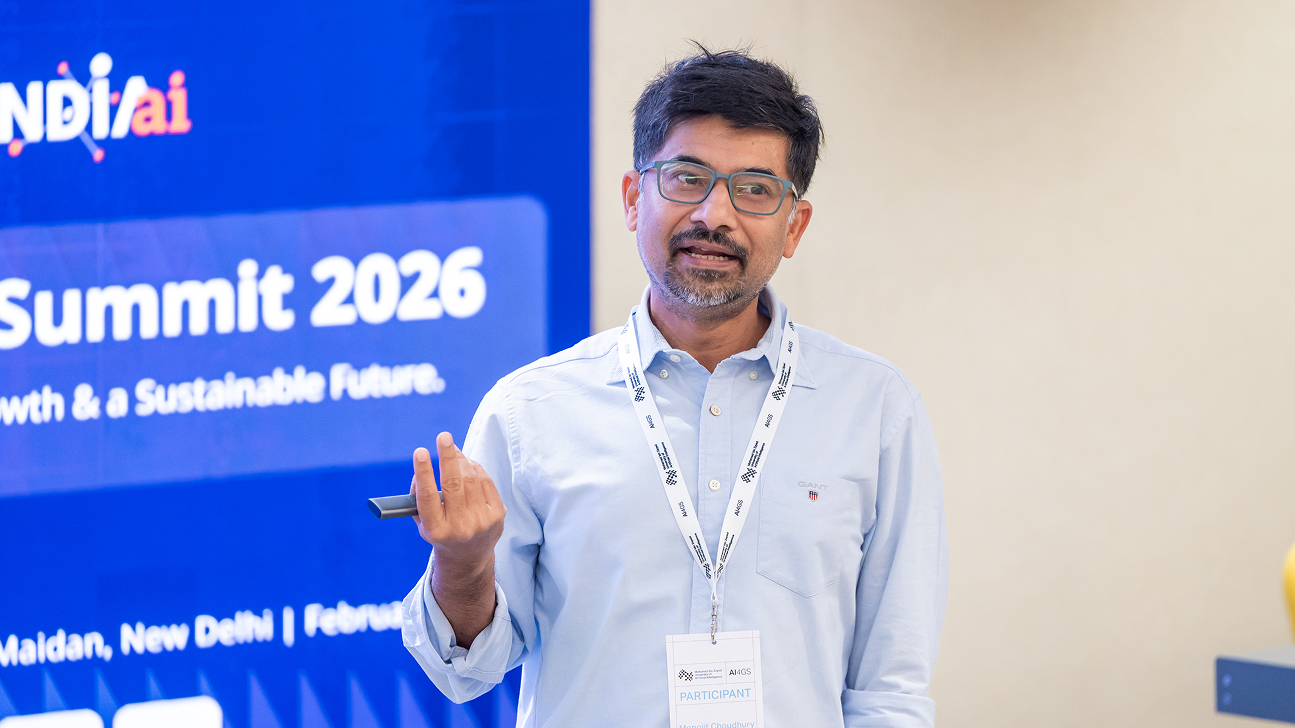The reward is in the application: UAE professionals power national progress
Tuesday, November 11, 2025

As AI becomes a central force in the world’s economies, two UAE professionals — Sultan Al Mansoori and Hind Almarzooqi — are equipping themselves with advanced, applied knowledge through the Master in Applied Artificial Intelligence (MAAI) program at MBZUAI.
They are part of the inaugural cohort, reflecting a shared commitment to harness AI for the nation’s priorities and position Abu Dhabi not just as a hub of AI innovation, but as the global hub.
From ambition to application: why they chose MBZUAI
Both professionals are on the front-line of AI adoption and were drawn to MBZUAI’s balance of research excellence and practical application.
At Mubadala, Al Mansoori is the senior specialist in AI enablement and part of the founding team driving the company’s AI strategy. The first-of-its-kind program in the Emirates came at the perfect moment.
“Knowing AI is very different than applying AI, and here it aligns perfectly with my ambitions to make Abu Dhabi ‘the’ global hub of AI rather than ‘a’ hub of AI,” he says. “The faculty at MBZUAI is exceptionally good, and taking this pool of talent and putting something in the application context complements what the world needs, which is not only AI experts, but people who know how AI is used for value creation.”
For Almarzooqi, a data analyst at the Abu Dhabi Pension Fund, the decision was equally strategic. “Abu Dhabi is doubling down on AI and customer experience, and I’m at a point where the right training can multiply my impact,” she says. “I chose a rigorous, applied program to take ideas from pilot to production so we can deliver clearer, faster, more human-centered services at scale.”
More than a degree, the MAAI program addresses a critical skills gap and serves as a bridge between innovation and implementation; between national purpose and global leadership.
Challenges that sparked curiosity
Both entered the program with firsthand experience of how data and technology are reshaping their industries. Al Mansoori saw untapped potential in how data could drive investment decisions, while Almarzooqi faced the challenge of turning strong AI pilots into sustainable, production-level tools.
“Utilizing a great synthesis of high volume and velocity data is hard for alpha capturing when it comes to investments,” Al Mansoori says. “But the challenge is not only in this industry; all industries could be elevated by applying such technologies.”
For Almarzooqi, the recurring challenge was “moving strong pilots into stable production. This program gives me the rigor to cross that last mile,” she says. “We operate in a regulated, service-heavy environment with multi-channel interactions and high expectations for clarity. The opportunity is to turn that complexity into simple, explainable guidance consistently and at scale.”
Both say the program exceeded expectations and credit collaboration with their peers for enriching the journey.
“The instructors were focusing on more hands-on experience than I thought, which really helped us understand the essence of applied AI,” Al Mansoori says. “Work-life-study balance was shocking, especially given my busy schedule, but as the momentum built, we tackled it together with my classmates.”
“I expected a hands-on program, and it delivered,” Almarzooqi says. “What I didn’t anticipate was how much I’d learn from my peers. The cohort’s diverse backgrounds have accelerated my thinking as much as faculty access and rapid prototyping.”
Learning by doing
MBZUAI’s applied focus sets it apart, with lessons felt almost immediately in their workplaces.
“Learning is beyond lectures; humans can never learn more without doing,” Al Mansoori says. “This is a unique skill that I believe has never existed before, which is to ‘know how to apply AI anywhere.’”
At Mubadala, he is already applying classroom lessons to strategy. “My new responsibilities in the AI lab coincided with enrolling in this program, so whenever I was about to test the art of what’s possible, I had to consider and use a lot of skills I’m learning in the MAAI program,” he says.
Almarzooqi described a similar energy. “I wear the student hat everywhere; on campus it becomes a more curious, humble version, and that’s what makes it energizing,” she says. “The real wins are the community, direct faculty access, and a fast iteration rhythm, so ideas sharpen in hours, not weeks.”
“It is unapologetically applied without losing scientific depth,” she adds. “Small classes, direct access to faculty, and labs that mirror real constraints make the learning stick.”
Turning knowledge into impact
The goal for both professionals is not only to advance their careers but also to contribute to the UAE’s national AI priorities.
“Mubadala is already at the frontier in terms of AI adoption and defining the ‘future of fund,’” Al Mansoori says. “I’m extremely happy to be part of the founding team of AI at Mubadala.”
Almarzooqi’s vision is equally transformative. She aims to establish an AI Center of Excellence, focusing on scaling solutions responsibly. “Productizing reusable services (evaluation, forecasting, guidance), embedding governance and MLOps, and upskilling teams so AI becomes part of everyday operations,” she says.
“My plan is to mature and scale what I’ve already built and introduce new solutions. I’ll turn the strongest use cases into stable services with clear owners and simple guardrails, set up shared building blocks so teams can reuse models and datasets, and run short adoption sessions so non-technical teams can use them confidently.”
As Abu Dhabi accelerates toward a knowledge economy, professionals such as Al Mansoori and Almarzooqi embody the UAE’s AI vision of building homegrown talent capable of achieving global impact.
Redefining leadership in the age of AI
For Al Mansoori, AI is transforming leadership itself. “I believe that we will be seeing a lot of young leaders in the not-too-distant future; as AI is reducing the obstacle of experience, and thus intellectual thinking is becoming more important than experience,” he says. “In my case, I make sure that AI augments my knowledge and minimizes any knowledge gap I have, by ensuring it remains my teacher, yet I make sure to question its responses.”
Almarzooqi sees leadership evolving toward collaboration and experimentation. “AI is turning leaders into platform builders: less top-down direction, more orchestration of data, people, and services that learn in the open,” she says. “The job shifts from ‘approve a project’ to ‘set the problem, set the guardrails, and run disciplined experiments until outcomes improve’.”
Both agree that keeping abreast of AI applications is critical and encourage other working professionals in the UAE to apply. Through a mix of core AI knowledge, projects, and industry experience, they’re not just learning AI; they’re shaping how it will serve their entities, customers, and society.
“Choose applied, ethical training, keep your work explainable, and share what you learn so it spreads,” Almarzooqi adds.
A global classroom to build AI people can trust and use
According to Almarzooqi, MBZUAI’s diversity is what gives the program its edge. “MBZUAI blends strong research with problems that have public impact, which attracts people who want to build useful systems, not just papers,” she says.
“The University connects students with faculty, shared compute, and partners across government and industry, so ideas move quickly from concept to trial. The culture prizes clarity, measurement, and responsibility, which helps you build AI that people can trust and actually use.”
Al Mansoori offers clear advice for professionals considering the same path. “People should love AI instead of following a trend,” he says. “AI existed long before, and loving what you do is the key to success and excellence.”
The MAAI program is offered part-time with evening and weekend classes to suit professionals. Applications for the fall 2026 intake are now open.
- training ,
- leadership ,
- impact ,
- applied AI ,
- master's ,
- MAAI ,
- professional ,
Related
MBZUAI's Launch Lab equips alumni and students with practical startup tools
The six-week pilot program brought alumni and students together to turn early startup ideas into tangible ventures.
- launch lab ,
- alumni relations ,
- startups ,
- alumni ,
- entrepreneurship ,
Designing the human side of AI
MBZUAI’s inaugural HCI Symposium explored how people will live and work alongside AI, and how to ensure.....
Read MoreBalancing the future of AI: MBZUAI hosts AI for the Global South workshop
AI4GS brings together diverse voices from across continents to define the challenges that will guide inclusive AI.....
- equitable ,
- representation ,
- global south ,
- AI4GS ,
- event ,
- languages ,
- workshop ,
- inclusion ,
- accessibility ,
- large language models ,
- llms ,


